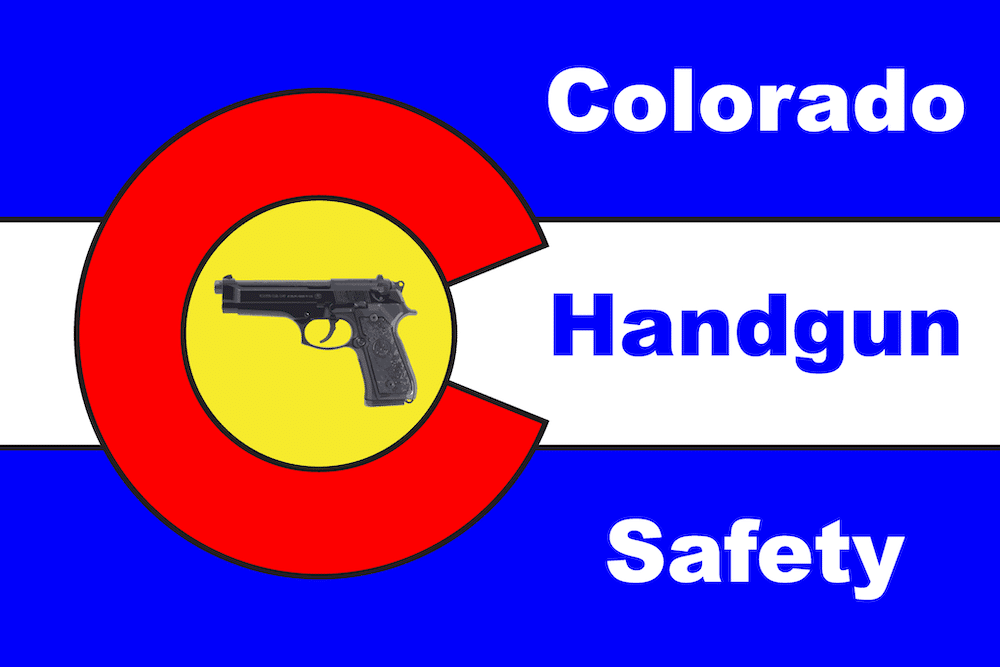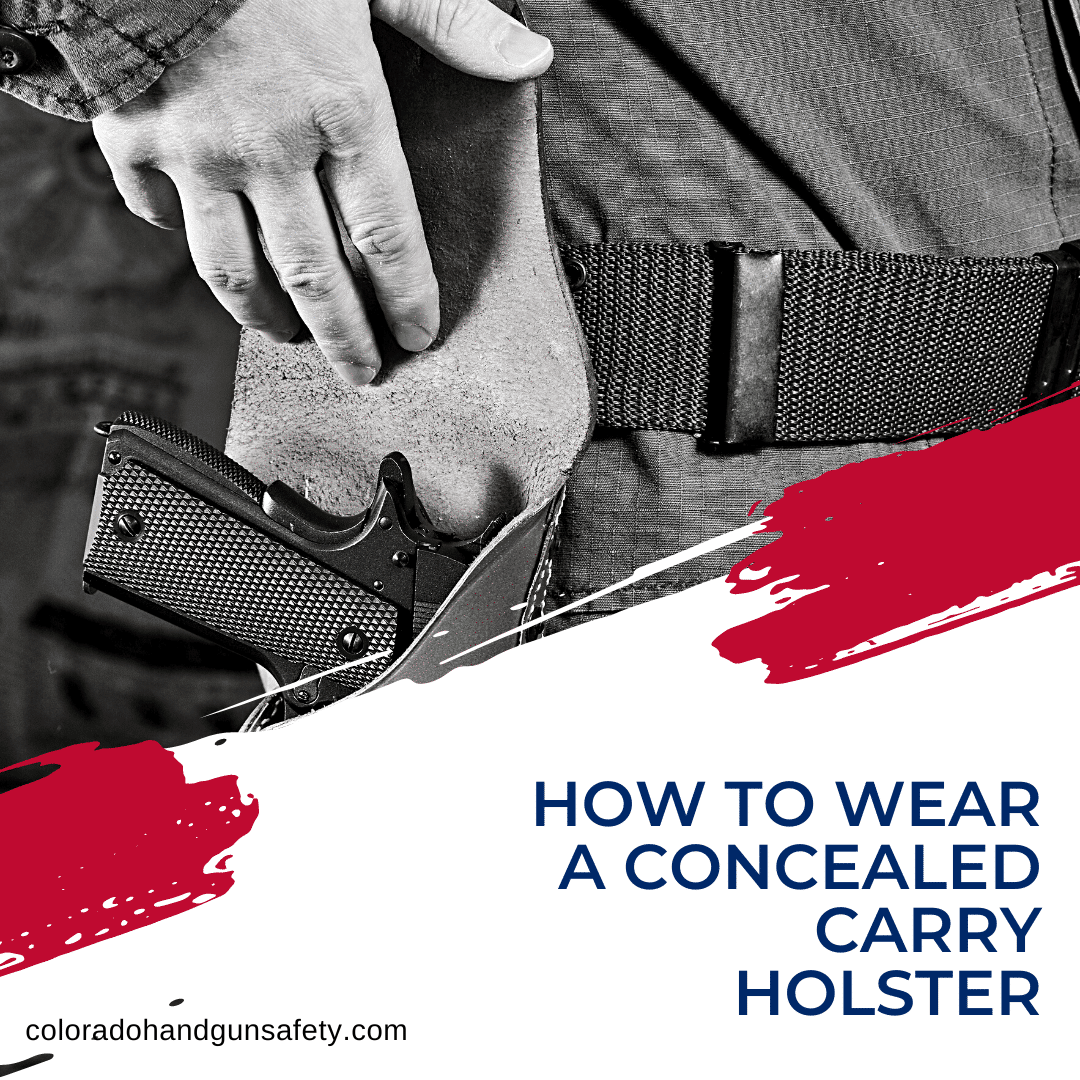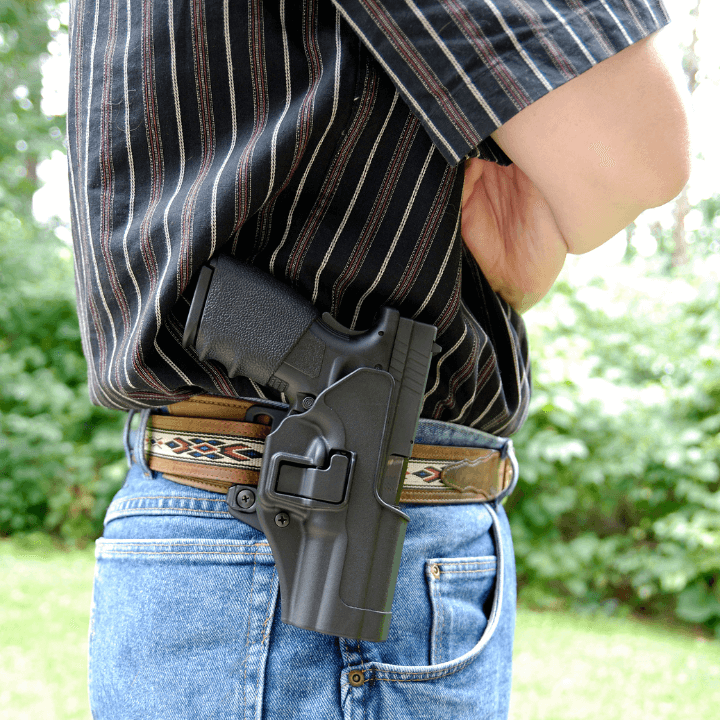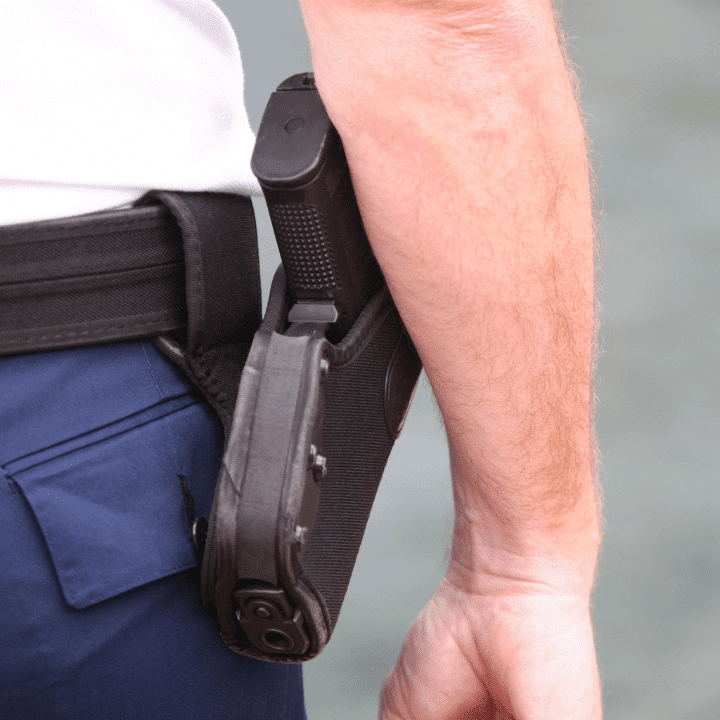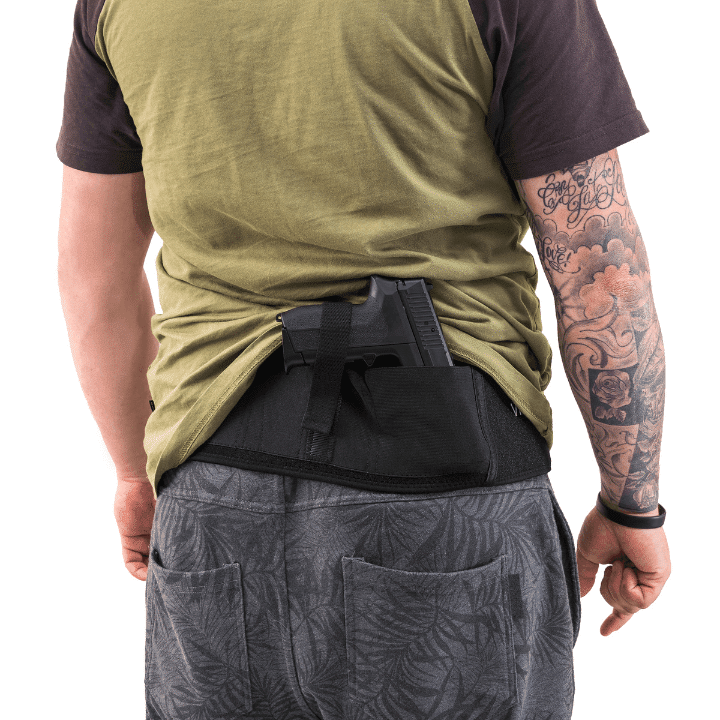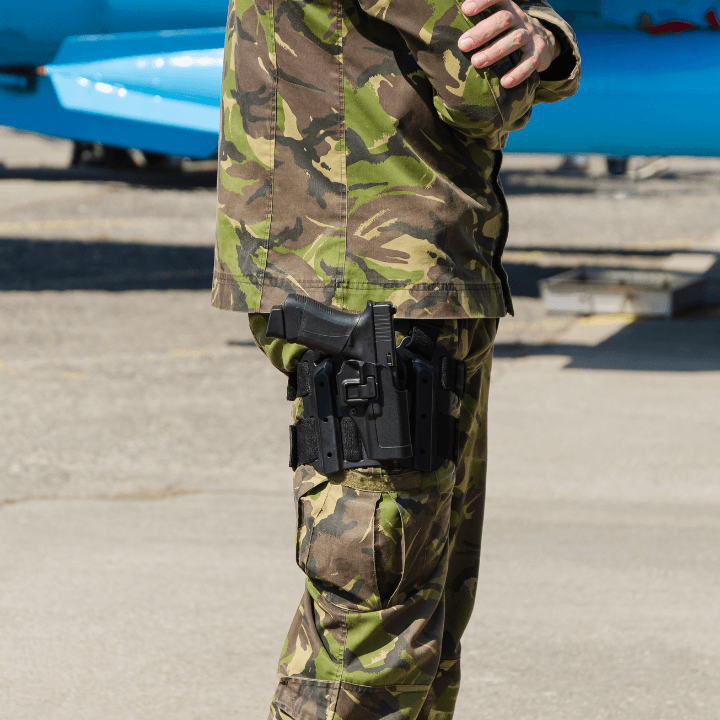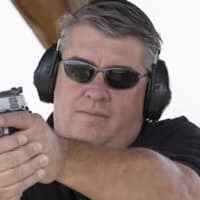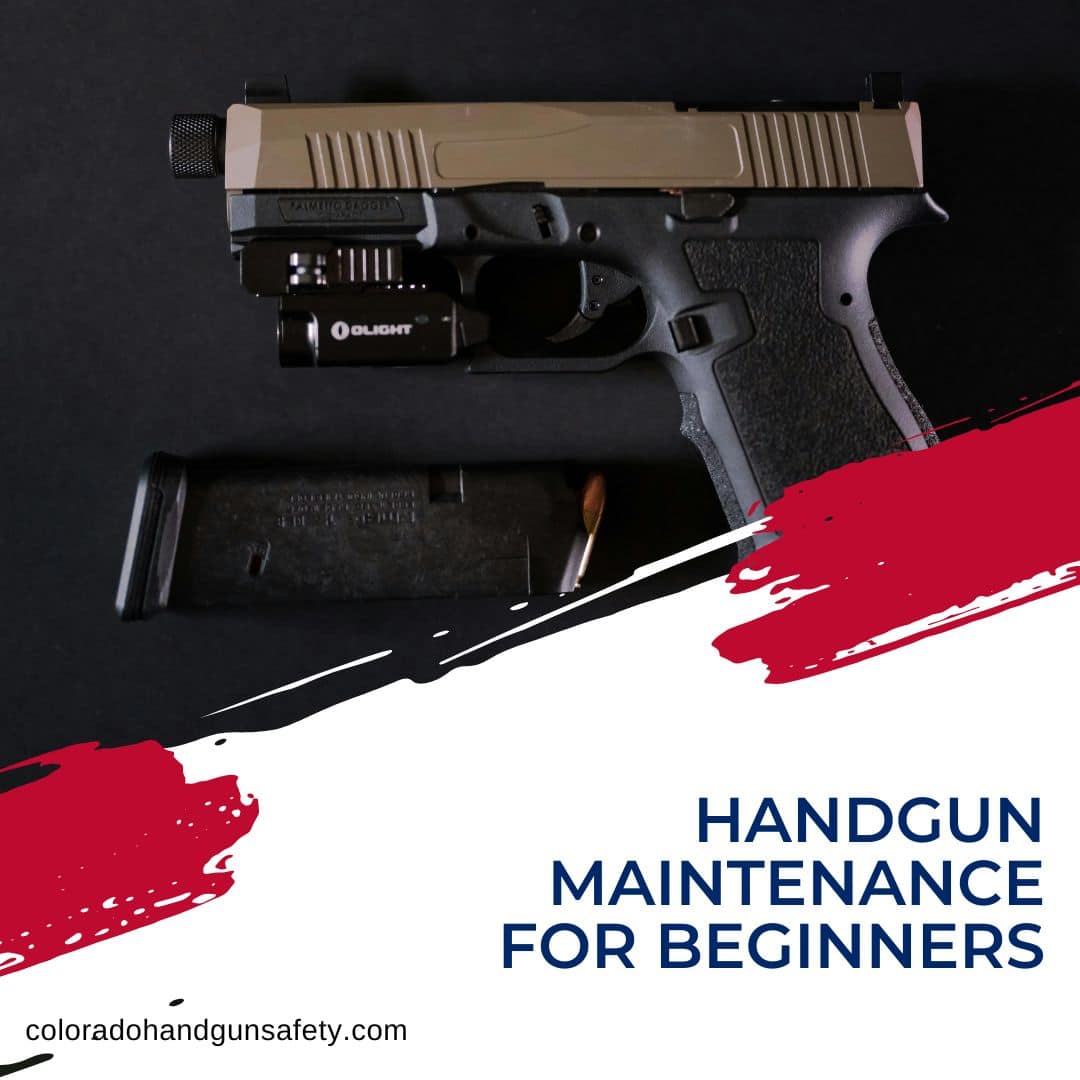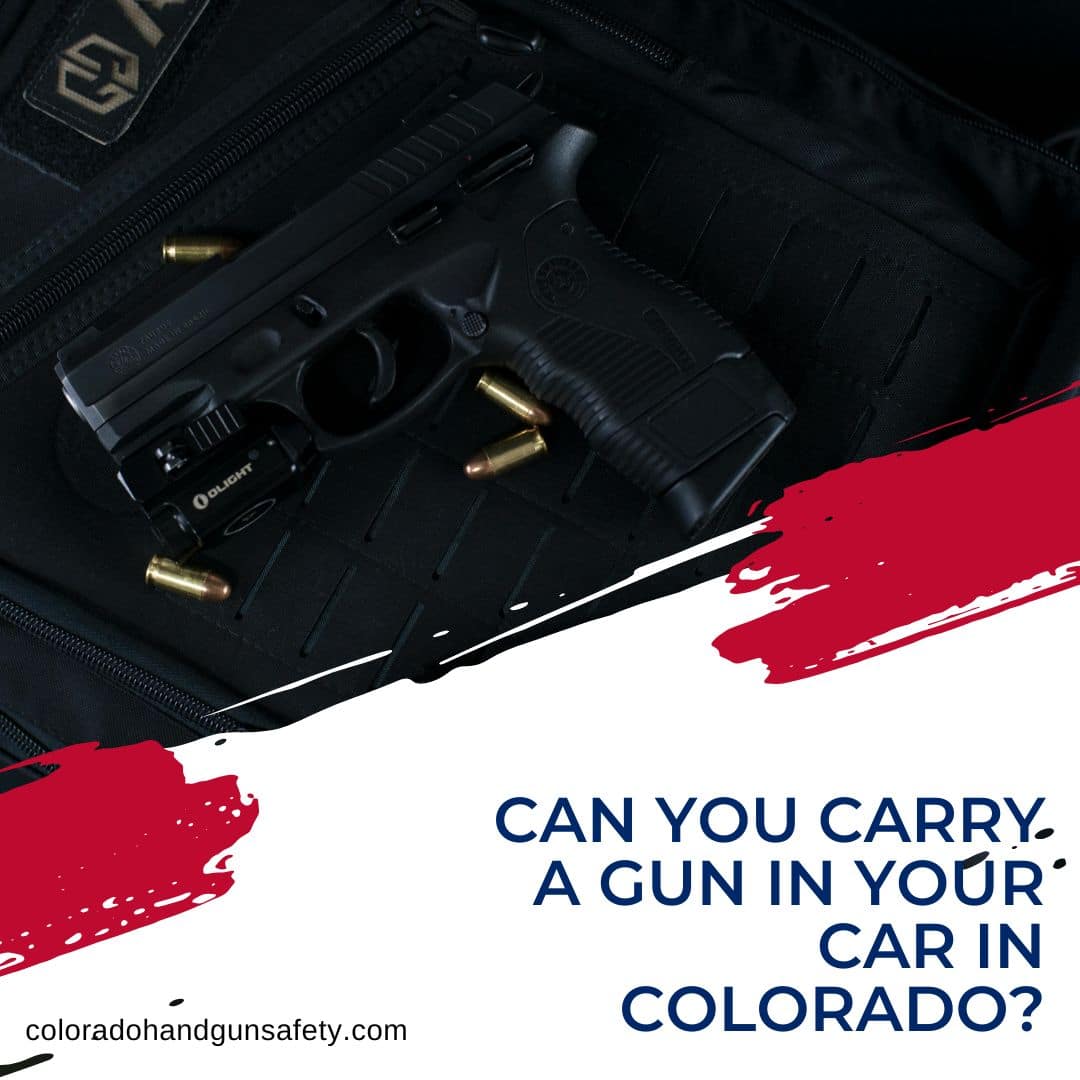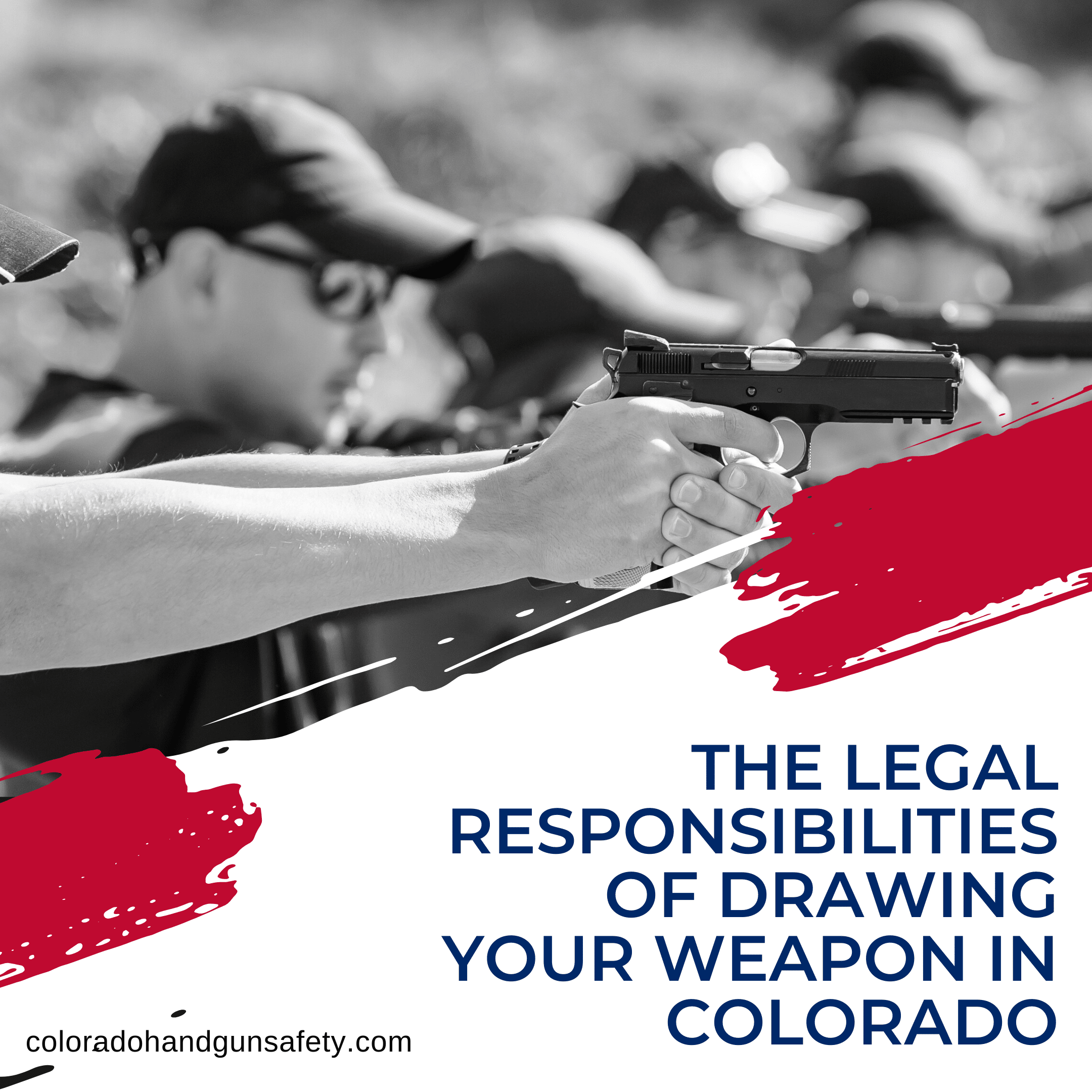If you’re a concealed carry permit holder, you, without a doubt, need a holster to keep your handgun secure. Holsters provide a comfortable, discreet, and safe fit for your pistol.
That being said, if you’re new to concealed carry, holsters may be confusing at first. Luckily, once you get the hang of it, you’ll confidentially be able to wear a concealed carry holster.
Let’s take a look at some types of holsters you can choose from, how to wear them, and how to pick the best holster for your firearm needs.
Types of Holsters
The first step to wearing a concealed carry holster is picking the right type. Truthfully, the kind of holster you select is solely based on personal preference. Ideally, you should choose one that fits your body comfortably, feels secure on your body, and provides optimal access to your handgun.
You can typically think of concealed carry holsters in two categories: inside-the-waistband (IWB) and outside-the-waistband (OWB).
IWB holsters are, as the name suggests, worn inside your waistband. They are typically made with a belt clip and soft materials for comfort. Some IWB holsters, like appendix inside-the-waistband (AIWB) holsters, can be worn inside the front of your pants for quick access to your firearm.
OWB holsters are placed outside of your waistband, usually on the hip. They tend to provide a more secure fit than IWB holsters but can be bulky and harder to conceal. Some OWB holsters have a retention system that keeps the gun in place for extra security.
How to Wear a Concealed Carry Holster
How to wear your holster depends on the type of holster you choose. Here are some of the most popular holsters and what each offers:
- Ankle holsters
- Small-of-back holsters
- Shoulder holsters
- Thigh holsters
- Belt holsters
Now, let’s take a look at each type of concealed carry holster, their benefits, and how to wear them.
How to Ankle Concealed Carry
Ankle holsters are helpful if you need to hide your handgun without drawing attention. They are typically worn under pants or long skirts, with the holster strapped around the ankle.
You can wear this type of holster on either leg on the inside or outside, depending on your dominant hand. To ankle concealed carry, make sure you:
- Wrap the holster securely around your ankle.
- Check that the holster and strap feel secure and tight but comfortable so it’s not cutting off circulation.
- Adjust the holster so that it’s easy to draw your gun.
- Practice drawing from the ankle holster to ensure you have quick access in an emergency.
How to Small-of-Back Carry
Back holsters are a great way to conceal your firearm without compromising access. This type of holster is usually worn on the backside and made with a belt clip.
When wearing a small-of-back (SOB) holster, make sure the gun is positioned in the center of your back and slightly tilted downward to ensure easy access.
A lot of concealed carry permit holders find that SOB holsters are more comfortable than other types. To small-of-back carry:
- Position the gun in the middle of your back for better balance and weight distribution.
- Adjust the holster so that it is easy to draw your gun.
- Tighten the holster for proper security.
- Secure the belt clip onto your waistband for optimal stability.
- Practice drawing from the holster.
How to Shoulder Concealed Carry
Shoulder holsters are a great option to conceal your firearm without compromising access. When wearing a shoulder holster, make sure that the weight is evenly distributed on both shoulders for maximum comfort. You’ll also want to ensure you’re not printing your handgun anywhere through your clothing.
To shoulder concealed carry, practice the following:
- Adjust the holster so that it’s easy to draw your handgun.
- Secure the straps across your chest and back for added stability.
- Make sure there is no printing of the gun through your clothing.
- Practice drawing from the holster for quick access.
How to Wear a Thigh Concealed Carry Holster
Thigh holsters, also called drop leg holsters, are great for concealed carry if you don’t want to wear a belt or waist holster. They are worn on the thigh and secured with adjustable straps.
When wearing this type of holster, make sure that the gun is placed securely yet comfortably so it won’t slip out of position while walking or running.
To wear a leg concealed carry holster make sure you:
- Adjust the straps so that the holster is securely and comfortably in place. Plus, make sure you test the holster sitting down so it’s not too tight and cutting off circulation.
- Position the gun slightly above your knee on either leg, depending on your dominant hand.
- Ensure your firearm and holster feel comfortable and natural.
- Practice drawing from the drop leg holster.
How to Concealed Carry With Belt Holsters
Belt holsters are a great option if you’re looking for an easy way to conceal your firearm. They are worn on the waistband and made with a clip or loop.
When wearing a belt holster, make sure that the gun is placed securely yet comfortably. Many concealed carry permit holders find that these types of holsters are the most comfortable.
To belt concealed carry, make sure you:
- Position the holster between your hip and belly button for optimal access.
- Adjust the clip or loop so that the holster is secure in place.
- Practice drawing from the holster to make sure you have quick access in case you need to defend yourself and those around you.
Learn How to Concealed Carry With Colorado Handgun Safety
By following these tips and practicing proper safety techniques, you can wear your concealed carry holster confidently in Colorado. At Colorado Handgun Safety, we offer courses to help you become a more responsible gun owner.
Our NRA-certified instructors will teach you the legalities of firearm ownership, how to handle a gun safely, and how to properly conceal your firearm in our CCW course. Ready to become a CCW permit holder in Colorado? Sign up for your CCW class with Colorado Handgun Safety today.
